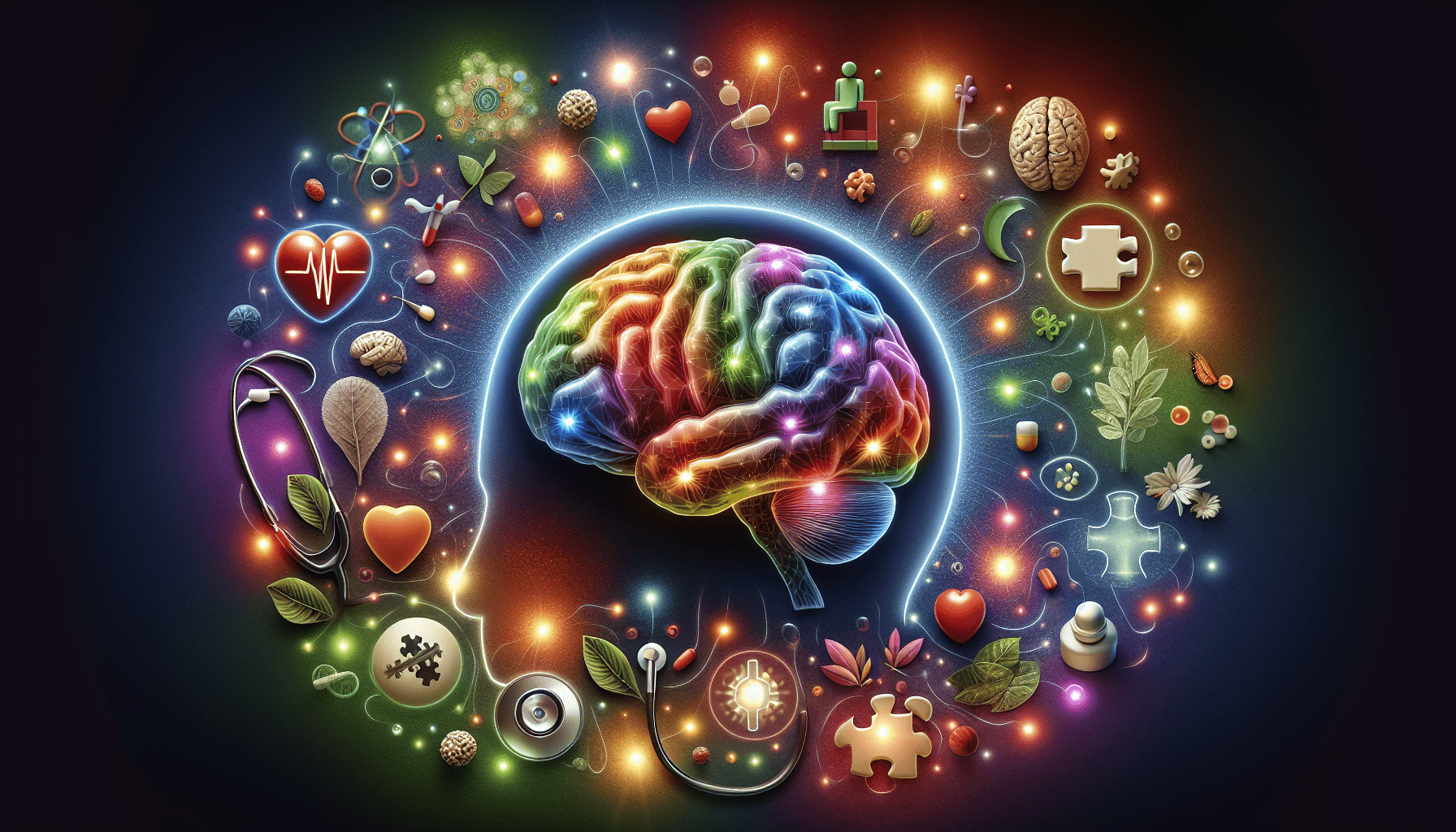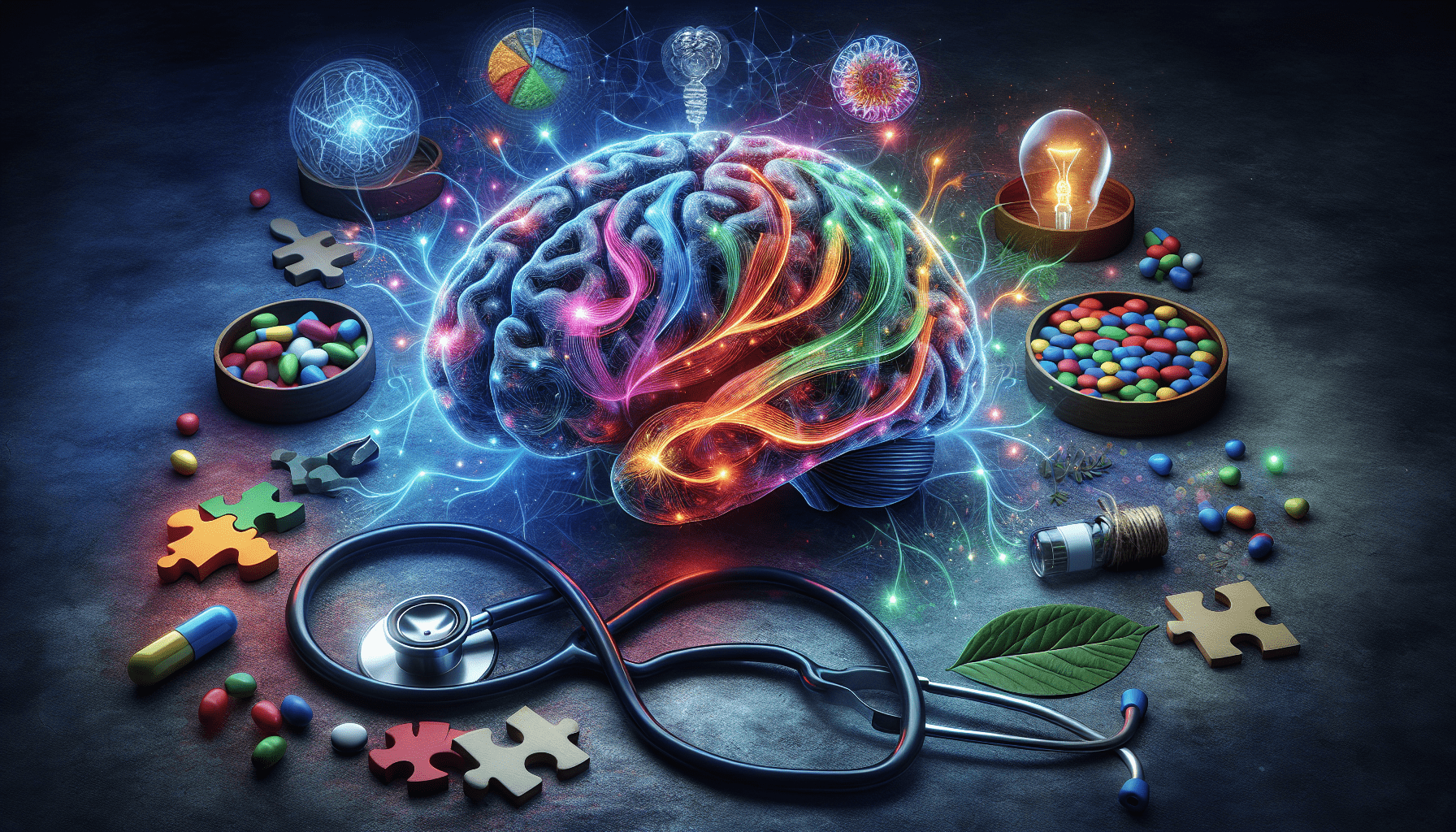In “Treatment Approaches for Dementia,” you'll delve into the various methods available to manage and alleviate the symptoms of this challenging condition. You'll discover that while there's no cure, numerous strategies can significantly improve quality of life for those affected. From medical treatments like cholinesterase inhibitors and memantine to holistic approaches such as cognitive therapies, lifestyle modifications, and caregiver support, the article comprehensively explores each avenue. Through an empathetic lens, you'll gain a richer understanding of how these treatments work together to forge meaningful pathways in the care of dementia patients. Have you ever found yourself wondering about the various treatment approaches for dementia? Understanding the available options and innovative strategies for managing this condition can be crucial, whether you're caring for a loved one or simply seeking knowledge. Let's delve into the different treatment approaches for dementia and shed some light on how each method can contribute to improving both the quality of life and the level of care for individuals suffering from this challenging condition.

Understanding Dementia
Dementia refers to a group of symptoms that impact memory, thinking, and social abilities to the extent that it interferes with daily life. It's important to know that dementia is not a specific disease but a general term that encompasses various conditions, including Alzheimer’s disease, vascular dementia, Lewy body dementia, and frontotemporal dementia, among others.
Symptoms and Diagnosis
The symptoms of dementia can vary greatly but often include problems with memory, confusion, difficulties in communication, changes in mood or behavior, and impaired reasoning. Diagnosis typically involves a combination of medical history, physical examinations, neurological tests, and cognitive assessments.
Treatment Approaches for Dementia
While there is no cure for dementia, several treatment approaches can manage symptoms and improve the quality of life. These treatments generally fall into pharmaceutical and non-pharmaceutical categories.
Pharmaceutical Treatments
Medication can play an important role in managing dementia symptoms. Here are some common pharmaceutical treatments:
Cholinesterase Inhibitors
Cholinesterase inhibitors, such as Donepezil (Aricept), Rivastigmine (Exelon), and Galantamine (Razadyne), help to increase levels of acetylcholine, a neurotransmitter involved in memory and judgment. These medications can delay worsening symptoms for six to twelve months and are effective for approximately half of the individuals who take them.
NMDA Receptor Antagonists
Memantine (Namenda) works by regulating the activity of glutamate, another neurotransmitter involved in learning and memory. Often prescribed to treat moderate-to-severe Alzheimer’s disease, it can help improve memory, attention, reason, language, and the ability to perform simple tasks.
| Cholinesterase Inhibitors | NMDA Receptor Antagonists | |
|---|---|---|
| Medications | Donepezil, Rivastigmine, Galantamine | Memantine |
| Usage | Mild to moderate dementia | Moderate to severe Alzheimer’s |
| Potential Benefits | Delays symptom progression | Enhances cognitive function |
Other Medications
In addition to the above, various other medications can be used to manage specific symptoms of dementia, such as antidepressants for mood disorders, anxiolytics for anxiety, and antipsychotic drugs for severe behavioral issues. However, these are typically prescribed with caution due to the potential for side effects.
Non-Pharmaceutical Treatments
Non-pharmaceutical interventions can be just as important as medications in the management of dementia. These approaches often involve lifestyle adjustments, therapeutic activities, and supportive environments.
Cognitive Stimulation Therapy (CST)
CST is a structured program designed for people with mild to moderate dementia, promoting cognitive and social functioning. Activities may include discussions, word games, puzzles, music, and creative activities. Research shows that CST can enhance memory and general cognitive function.
Cognitive Behavioral Therapy (CBT)
CBT is used to address depression, anxiety, and other mental health issues that commonly accompany dementia. It focuses on changing negative thinking patterns and behaviors, offering coping strategies and improving mental well-being.
Reminiscence Therapy
This approach encourages individuals to recall and talk about their past experiences. By using photographs, favorite songs, and other meaningful artifacts, reminiscence therapy helps stimulate conversation, improve mood, and foster a sense of continuity and identity.
Lifestyle and Supportive Care
Making certain lifestyle changes and providing supportive care can greatly enhance the well-being of someone with dementia.
Physical Exercise
Regular physical exercise can benefit not just physical health but also cognitive function. Activities such as walking, swimming, or even light stretching can enhance mood, improve sleep, and reduce anxiety.
Nutrition
A balanced diet plays a crucial role in maintaining overall health. The Mediterranean diet, rich in fruits, vegetables, whole grains, fish, and healthy fats, has been associated with improved cognitive function and a slower progression of dementia.
Environmental Modifications
Adapting the living environment to make it safer and easier to navigate can also improve the quality of life for people with dementia. This might include installing grab bars, reducing clutter, improving lighting, and using simple signage.
Innovative and Emerging Treatments
Research is continually unfolding in the field of dementia treatments, offering hope for more effective solutions.
Personalized Medicine
Personalized medicine tailors treatment based on the individual’s genetic, biomarker, phenotypic, or psychosocial characteristics. This approach can enhance the effectiveness of treatments and minimize the risk of adverse effects.
Immunotherapy
Immunotherapy is an emerging field focusing on the immune system to combat neurodegenerative diseases. Therapies such as monoclonal antibodies aim to remove amyloid plaques and tau tangles, which are hallmark features of Alzheimer’s disease.
Digital Therapeutics
Digital therapeutic tools are being developed to provide personalized cognitive training, behavioral therapy, and symptom monitoring through apps and wearable devices. These digital solutions offer new ways to engage individuals with dementia and track their progress.
Multidisciplinary Approach
Effectively managing dementia often requires a multidisciplinary approach involving various healthcare professionals.
Geriatricians
Geriatricians specialize in the health care of older adults and play a key role in diagnosing and managing dementia.
Neurologists
Neurologists focus on the brain and nervous system, offering expertise in understanding the neurological aspects of dementia.
Psychiatrists and Psychologists
These professionals provide essential mental health support, addressing issues such as depression, anxiety, and behavioral changes.
Occupational Therapists
Occupational therapists help individuals maintain their independence by teaching strategies to cope with daily activities and suggesting modifications to the home environment.

Caregiver Support and Education
Supporting caregivers is equally critical in the treatment of dementia. Caregivers often face emotional, physical, and financial challenges and require resources to help them cope.
Training and Resources
Access to training sessions, support groups, and educational materials can equip caregivers with the knowledge and skills needed to provide effective care.
Respite Care
Respite care provides temporary relief for caregivers, allowing them to rest and recharge while ensuring that their loved ones receive professional care.
When it comes to treating dementia, there isn't a one-size-fits-all solution. Each individual may respond differently to various treatments, and a combination of approaches often yields the best outcomes. By exploring and integrating these pharmaceutical, non-pharmaceutical, and lifestyle strategies, as well as embracing innovative research, we can move towards a more comprehensive, compassionate, and effective care model for those affected by dementia.
Remember, understanding dementia and its treatment options empowers you to make informed decisions and offer the best support possible, enhancing the quality of life for both those living with dementia and their caregivers.
